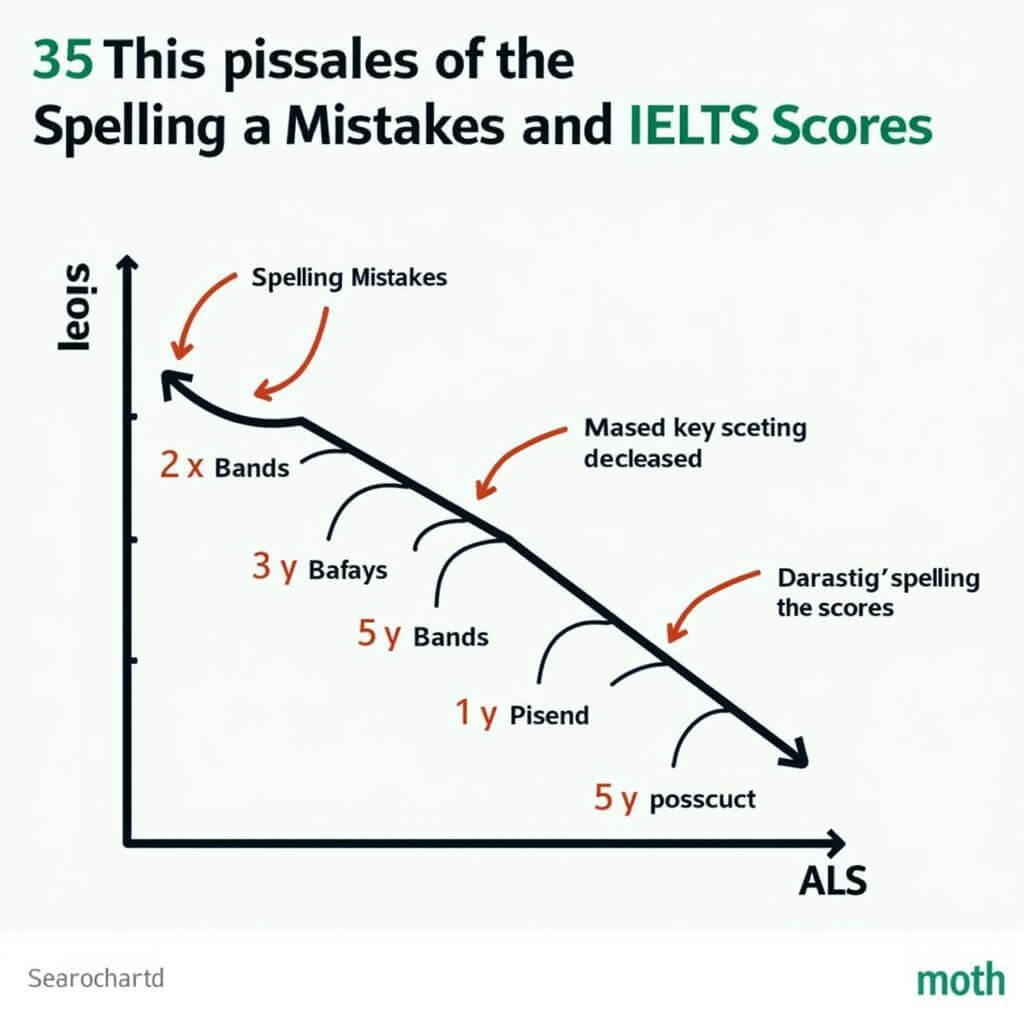Spelling is a crucial aspect of the IELTS exam, as it directly impacts your writing and reading scores. Many test-takers underestimate the importance of correct spelling, leading to unnecessary errors that can be easily avoided. In this guide, we’ll explore common spelling mistakes in IELTS and provide strategies to overcome them.
Understanding the Impact of Spelling Mistakes in IELTS
Spelling errors can significantly affect your IELTS score, particularly in the Writing and Reading sections. Examiners pay close attention to spelling accuracy, as it reflects your overall language proficiency and attention to detail.
How Spelling Affects Your IELTS Score
- Writing Task: Spelling mistakes can lower your score in the “Lexical Resource” criterion.
- Reading Task: Incorrect spelling in your answers may result in lost marks, even if you understood the passage correctly.
- Overall Impression: Consistent spelling errors can negatively impact the examiner’s perception of your English language skills.

Common Spelling Mistakes in IELTS
Let’s examine some of the most frequent spelling errors encountered in IELTS exams:
-
Homophones (words that sound alike but have different meanings and spellings)
- Example: “their” vs. “there” vs. “they’re”
- Example: “its” vs. “it’s”
-
Double consonants
- Example: “committed” (correct) vs. “commited” (incorrect)
- Example: “occurrence” (correct) vs. “occurence” (incorrect)
-
Silent letters
- Example: “government” (correct) vs. “goverment” (incorrect)
- Example: “environment” (correct) vs. “enviroment” (incorrect)
-
British vs. American spelling
- Example: “colour” (British) vs. “color” (American)
- Example: “centre” (British) vs. “center” (American)
-
Commonly misspelled words
- Example: “accommodation” (correct) vs. “accomodation” (incorrect)
- Example: “independent” (correct) vs. “independant” (incorrect)
Strategies to Improve Your Spelling for IELTS
Enhancing your spelling skills is essential for IELTS success. Here are some effective strategies to help you avoid common spelling mistakes:
1. Read Extensively
Reading widely exposes you to correct spelling in context. Focus on high-quality publications such as academic journals, reputable newspapers, and books related to IELTS topics.
2. Use Mnemonics
Create memorable phrases or acronyms to help you remember tricky spellings:
- “i before e, except after c” (for words like “receive” and “achieve”)
- “Necessary: one collar, two sleeves” (to remember one ‘c’ and two ‘s’s)
3. Practice with Spelling Lists
Compile lists of commonly misspelled words and practice writing them regularly. Focus on words that frequently appear in IELTS exams.
4. Utilize Online Resources
Take advantage of online spelling quizzes, apps, and games designed to improve spelling skills. Websites like Grammarly and Spellcheck.net can be valuable tools for self-correction.
5. Learn Spelling Rules
Familiarize yourself with common spelling rules and their exceptions. For example:
- Adding suffixes to words ending in ‘y’ (e.g., “happy” becomes “happiness”)
- Words ending in silent ‘e’ (e.g., “hope” becomes “hoping”)
6. Use a Dictionary
Keep a reliable dictionary handy during your IELTS preparation. When in doubt, always check the correct spelling of words.
Applying Spelling Skills in IELTS Tasks
Now, let’s look at how to apply these strategies in specific IELTS tasks:
Writing Task 1 and 2
- Proofread your essay carefully, focusing on spelling.
- Pay extra attention to key vocabulary related to the task topic.
- Double-check the spelling of any statistics or proper nouns mentioned in Task 1.
Reading Task
- Be cautious when transferring answers from the passage to your answer sheet.
- Remember that spelling must be 100% correct in the Reading section.
- Pay attention to singular/plural forms and any necessary capitalization.
Listening Task
- Focus on the correct spelling of names, numbers, and specific terms.
- Be aware of homophones and similar-sounding words.
- Practice spelling words as you hear them during your preparation.
Common Pitfalls to Avoid
Be aware of these common spelling-related mistakes in IELTS:
- Overreliance on spell-check tools during preparation
- Neglecting to proofread your work in the exam
- Mixing British and American spellings inconsistently
- Rushing through the exam and making careless spelling errors
- Failing to clarify unfamiliar words during your study sessions
Practice Exercises for Spelling Improvement
To reinforce your spelling skills, try these exercises:
-
Dictation: Have someone read aloud IELTS-style passages while you write them down, focusing on spelling.
-
Word Family Practice: Create lists of related words (e.g., “decide,” “decision,” “decisive”) and practice spelling them correctly.
-
Homophone Challenges: Write sentences using commonly confused homophones correctly (e.g., “Their new house is over there, and they’re very excited about it.”).
-
Spelling Bee: Organize spelling competitions with fellow IELTS candidates to make learning more engaging.
-
Error Correction: Review sample IELTS essays with intentional spelling mistakes and practice identifying and correcting them.
Conclusion
Mastering spelling for the IELTS exam is a crucial step towards achieving a high score. By understanding common mistakes, implementing effective strategies, and practicing regularly, you can significantly improve your spelling accuracy. Remember, attention to detail in spelling not only boosts your score but also enhances the overall quality of your written English. Keep practicing, stay vigilant during the exam, and approach each task with confidence in your spelling abilities. With dedication and the right approach, you can overcome spelling challenges and excel in your IELTS journey.